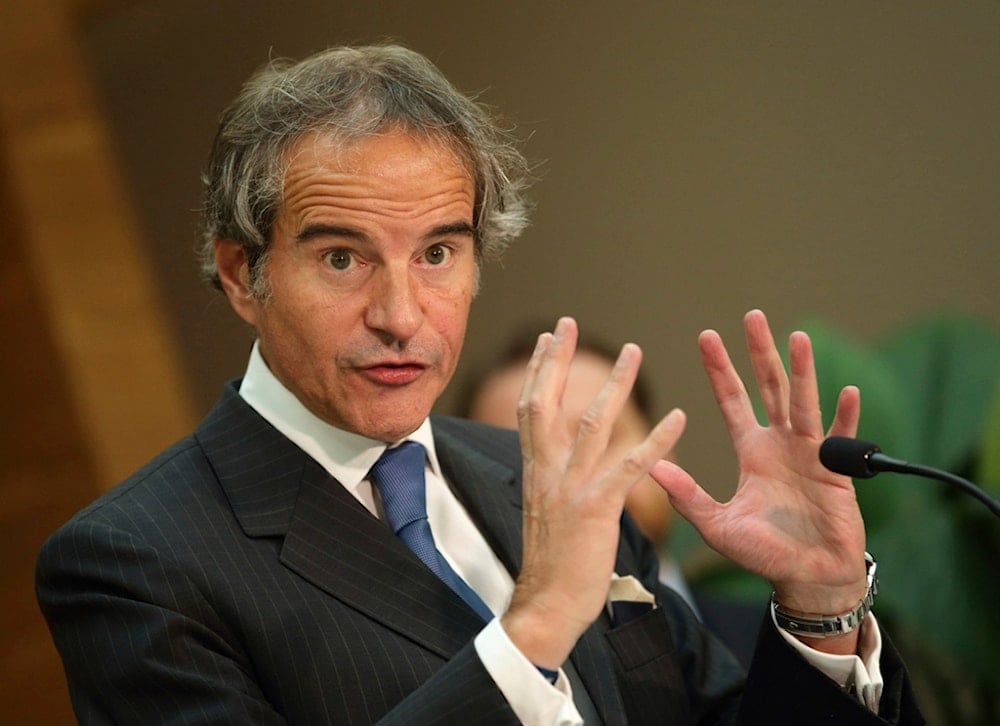Future Iran deal must ensure firm oversight: IAEA chief
While Iran has long cooperated with the IAEA and allowed access to its nuclear facilities under past agreements, IAEA chief Rafael Grossi maintained that robust inspection protocols should accompany any renewed accord.
-

International Atomic Energy Agency (IAEA) Director General, Rafael Grossi, addresses the media after arriving at the Vienna International Airport in Schwechat, Austria, Tuesday, May 7, 2024 (AP Photo/Heinz-Peter Bader)
On Wednesday, Rafael Grossi, Director General of the International Atomic Energy Agency (IAEA), commented on the state of indirect nuclear talks between the US and Iran, stating that any future agreement should include firm monitoring mechanisms. While Iran has long cooperated with the IAEA and allowed access to its nuclear facilities under past agreements, Grossi maintained that robust inspection protocols should accompany any renewed accord.
"My impression is that if you have that type of agreement, a solid, very robust inspection by the IAEA … should be a prerequisite, and I'm sure it will be, because it would imply a very, very serious commitment on the part of Iran, which must be verified," Grossi told reporters.
Iran's current enrichment levels, which have increased to 60% in response to Washington's unilateral withdrawal from the 2015 Joint Comprehensive Plan of Action (JCPOA), remain within its rights under the NPT.
Tehran has consistently asserted that its program is aimed at civilian energy and medical research, not weapons development. It has also pointed to the US as the party that violated the original agreement, imposing harsh sanctions despite Iran's full compliance at the time.
Pragmatic Oversight
While Grossi stopped short of calling for Iran to resume application of the Additional Protocol, which allowed surprise inspections of undeclared sites, he acknowledged the importance of verification. Iran had accepted these expanded oversight mechanisms voluntarily under the JCPOA, but suspended them after the US abandoned the agreement and reimposed sanctions.
Asked about reinstating the protocol, Grossi said, "I'm very practical," adding that current talks appear to be following an ad hoc format rather than focusing on legal frameworks. Though the IAEA is not formally involved in negotiations, Grossi confirmed ongoing communication with both parties, including US special envoy Steve Witkoff.
"I don't think they are discussing it in these terms. I don't see the discussion as being a discussion on legal norms to be applied or not. I tend to see this as more of an ad hoc approach," he said.
Sovereign Boundaries
In a notable development, Iranian officials have reportedly expressed willingness to consider allowing American IAEA inspectors into its facilities as part of a future agreement, a significant indication of Iran's openness to transparency, provided mutual respect and fair terms are guaranteed.
Despite this, the US position remains rigid. It continues to demand that Iran cease all enrichment activity, a red line that Iran firmly rejects. For Tehran, uranium enrichment is not only legal but essential for energy independence and scientific advancement. Any demand to eliminate it entirely is viewed as an infringement on national sovereignty.
Read more: NYT: 'Israel' still discussing strike on Iran amid US talks
The fifth round of talks, recently held in Rome, yielded what mediators described as limited but meaningful progress. A sixth round has not yet been scheduled. Tensions remain high, with reports suggesting that Israel may resort to military escalation if talks falter, a scenario that Iran and many international observers view as destabilizing and unjustified.
Nonetheless, Grossi remains hopeful that diplomatic pathways are still open.
"I think there's always a way," he said. "It's not impossible to reconcile the two points of view."

 3 Min Read
3 Min Read









